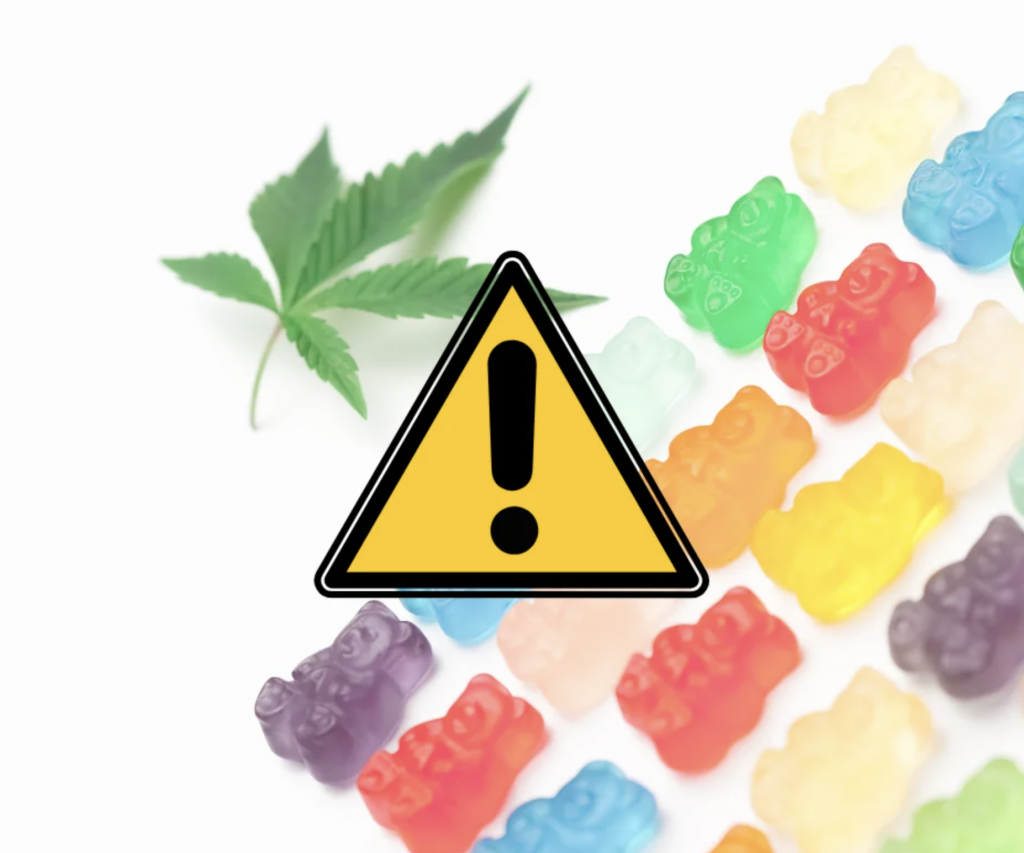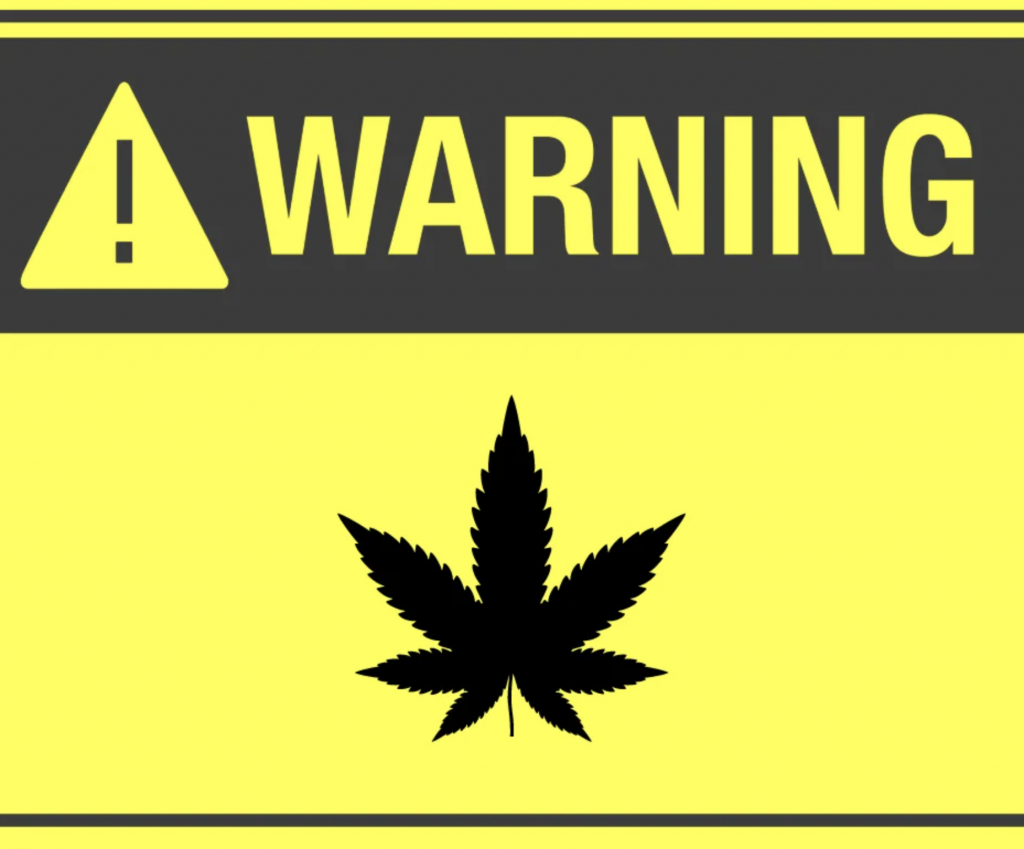
Some lawmakers in California believe that cannabis products should come with warning labels, much like cigarettes or alcohol. This does, however, present a little bit of a conundrum. Because of the federal legality of cannabis, proper research to factually identify potential health risks supposedly hasn’t been conducted. With that in mind, it makes it pretty difficult to effectively label a product for potential health risks. The risk associated with alcohol and tobacco is widely known and medically documented. The same cannot be said about cannabis.
Some lawmakers and members of the medical community claim that cannabis holds many potential health risks. Other people believe cannabis is the least of their concerns and are more worried about harmful additives in everyday products, dangerous dies added to food products, and chemicals found in big store brand potato chips that harm reproductive organs and could contribute to birth defects.
One of the big things about cannabis is how we talk about it. In order to talk about cannabis, we still have to beat around the bush. This is exactly what is being done with these warning labels. Warning labels are a great thing, but everything “may” cause some kind of problem. Placing warning labels on cannabis is a good idea and has been done in many places. One label on cannabis includes a sticker letting consumers know that a product contains THC. Warning labels also warn about the potential health risk to women who are pregnant or nursing.
California Lawmakers Propose New Warning Labels for Cannabis Products
SB1097, also known as the Cannabis Right to Know Act, could bring about a change to the way cannabis product warning labels look on cannabis products across California. Some of these warnings are as follows:
· “WARNING: Cannabis use may contribute to mental health problems, including increased thoughts of suicide and suicide attempts. Risk is greatest for frequent users.”
· “WARNING: Do not use if pregnant or breastfeeding. Exposure to cannabis during pregnancy may harm your baby’s health, including causing low birth weight.”
· “WARNING: Cannabis use may contribute to mental health problems, including psychotic disorders such as schizophrenia. Risk is greatest for frequent users and when using products with high THC levels.”
· “WARNING: Do not buy illegally sold cannabis as it is more likely to contain unsafe additives or harmful contaminants such as mold or pesticides.”
These are just some of the warning labels that could potentially end up on the front of cannabis products. Warning labels are a good idea. They indicate that there could be potential risks associated with something. Sadly, in today’s world, it seems that we need to put warning labels on everything. Why does soda not have a warning label on it? The excessive amount of sugar in soda can lead to all kinds of health problems. Not only does sugar pose a risk, but caffeine does as well. The combination of caffeine, sugar and chemical additives found in soda should raise flags for warning labels on each can sold, yet there are none.

Some Warnings Make Sense, the Others Seem Absurd and Unvalidated
Warning consumers about the potential risks associated with cannabis consumption is a great idea. Letting consumers know buying cannabis from the black market could potentially have contaminants is something that many people can get behind. However, claiming that cannabis causes increased attempts at suicide and increases thoughts of suicide seems a little bit ludicrous and there is no hard scientific data to base this upon.
The cannabis community is not known for being a violent psychotic community. That is typically reserved for alcoholics, and those that utilize harmful drugs such as heroin, meth, cocaine, and some pharmaceuticals. Substances like these are typically behind domestic violence disturbances, public fights, vandalism, and more. People that are busy with cannabis are working in order to buy more and oftentimes utilize cannabis over other accepted legal substances such as alcohol, tobacco, and prescription drugs.
In regards to cannabis causing increased attempts at suicide, suicide thoughts, and potential mental health issues such as schizophrenia, where is the truth to it? What research has been conducted in a controlled setting to support these accusations? Are more people turning to cannabis to help with mental health problems, or is cannabis the culprit that causes mental health problems?
Debunking the Proposed Warning’s Validity Regarding Schizophrenia
When a warning label says that cannabis can cause schizophrenia, does it take in the fact that there is actual clinical research promoting CBD for the treatment of schizophrenia? CBD is a compound found in cannabis. It can be found in both industrial hemp and medical/recreational/adult-use/retail cannabis. A 2012 study published in Transitional Psychiatry, showed that CBD had the same ability to help manage psychotic episodes from schizophrenia as Amisulpeide; only CBD produced fewer adverse and unwanted side effects.
Research from a study conducted by the Director of the Center for the Study of Cannabis at the University of California in Irvine, Daniele Piomelli, found that anandamide levels play an important role in determining the severity of outbreaks in individuals who suffer from schizophrenia. In this study, CBD was said to have increased anandamide levels in an effort to help reduce stress and symptoms associated with psychosis. Ultimately, the research suggested individuals who had schizophrenia experienced less severity in their symptoms when they had high levels of anandamide.
Another study that took place in 2020 involving researchers at Kings College in London monitored brain activity in people with psychosis using functional magnetic resonance imaging (FMRI) scans. These scans helped to produce evidence supporting the benefits of CBD for people with schizophrenia. According to the study’s senior author, Sagnik Bhattacharyya, MD, Ph.D., “Our study provides important insight into which areas of the brain CBD targets. It is the first-time research has scanned the brains of people with a diagnosis of psychosis who have taken CBD and, although the sample is small, the results are compelling in that they demonstrate that CBD influences those very areas of the brain that have been shown to have unusual activity in people with psychosis.”
According to information published in the Schizophrenia Bulletin back in 2012, people with schizophrenia who utilized cannabis had better cognitive function than those with schizophrenia who did not use cannabis. It seems that these proposed warning labels are simply more propaganda in order to hold back the cannabis community. They are not based upon factual research and seem to only be aimed at making individuals weary of utilizing medical cannabis.
Disclaimer: The information, including but not limited to, text, graphics, images and other material contained in this article is for informational purposes only. No material from this article is intended to be a substitute for professional medical advice, diagnosis, or treatment. Always seek the advice of your physician or other qualified health care provider with any questions you may have regarding a medical condition or treatment before undertaking a new health care regimen. Never disregard professional medical advice or delay in seeking it because of something you have read on this website.
